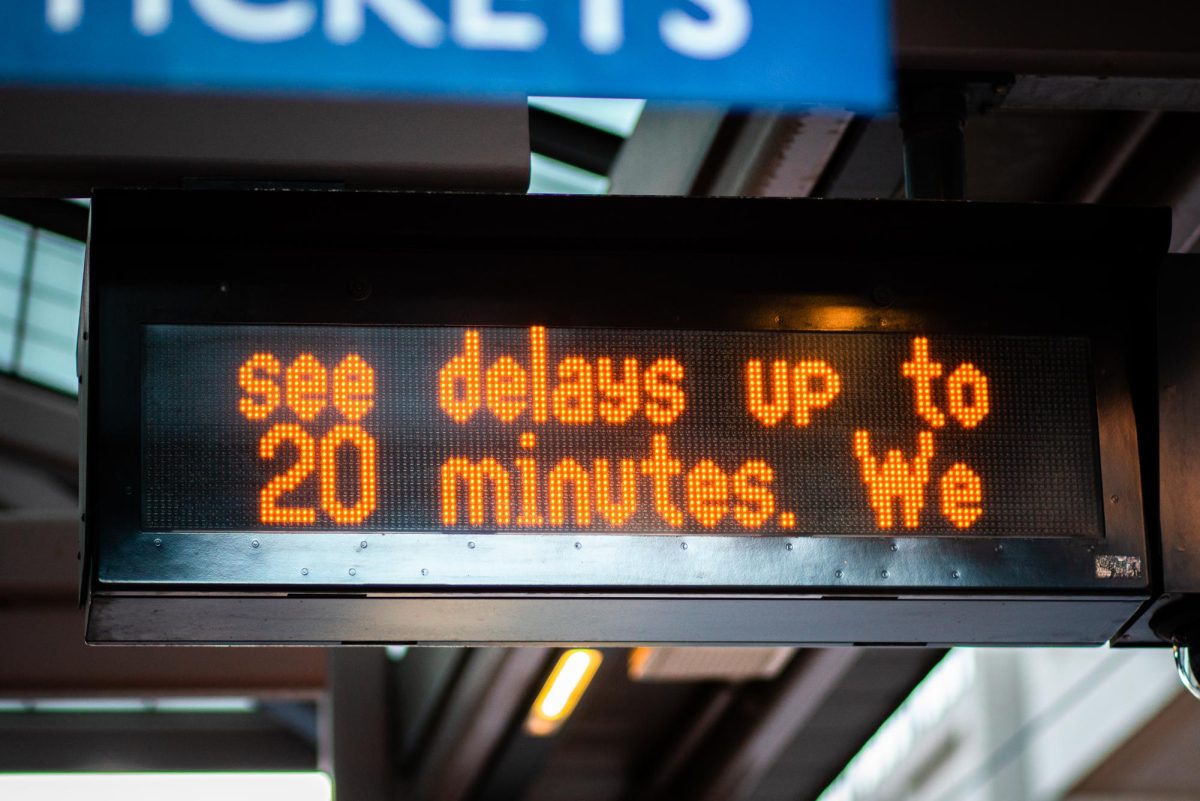Metro Green Line trains continue to experience delays as rails break from a sudden change in weather and have left residents with delays of up to 20 minutes.
Many students and faculty rely on the Green Line to get to class and work. These delays cause them to either be late or to have to wake up early to make the transit.
Delays should be expected for the foreseeable future and the poor condition of rail tracks is forcing trains to drive slower, Metro Transit spokesperson Laura Baenen said in a statement to The Minnesota Daily.
“We had several rail breaks when it got really cold recently and until permanent fixes can be made in consistently warm weather, trains need to travel at reduced speeds over them,” Baenen said.
The Green Line train tracks are embedded, Baenen said, meaning the concrete around the tracks has to be ripped out and filled back in to fix the issue.
Any effort to fix these repairs would have to happen once the weather is warmer and lead to Green Line services shutting down for a weekend, but no concrete plan has been made to fix the tracks, according to Baenen.
Similar repairs were made to Metro Blue Line trains in January 2024 as cold weather created tensions on the tracks.
First-year student Allie Gilbert said delays to the light rail significantly impacted her ability to get to class and visit friends.
“It’s just kind of irritating,” Gilbert said.
More trains have been put on the tracks to compensate for delays, Baenen said.
“In the meantime, we do our best to maintain the schedule by inserting extra trains as needed. We’re also making software improvements so these extra trains are observable through real-time transit information tools like Show My Train,” Baenen said.
First-year student Alma Garcia said she saw gaps between train rides of up to 25 minutes, even with added trains. These gaps led Garcia to be late to multiple classes, frustrating both Garcia and her professors.
“It’ll be like, ‘Oh, one train comes in at 9:10 and then the next train comes in 20, 25 minutes,’” Garcia said. “I feel like the teachers probably don’t know about the metro delay, so I feel like it kind of gives them that view, like, ‘Oh, she’s just late because she wants to be, not because of the actual metro problems.’”
Besides track damages and slower train speeds, Baenen said passenger behaviors such as holding the doors are leading to delays.
“Right now the students here, they’re getting to class late or people that work in the Twin Cities areas, they’re getting to work late,” Garcia said.








